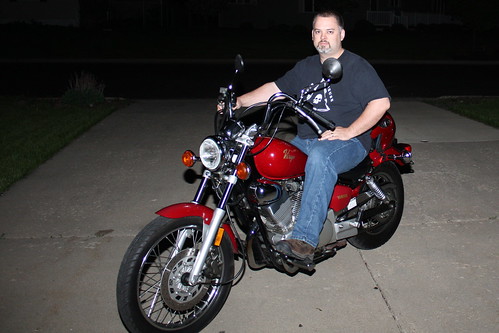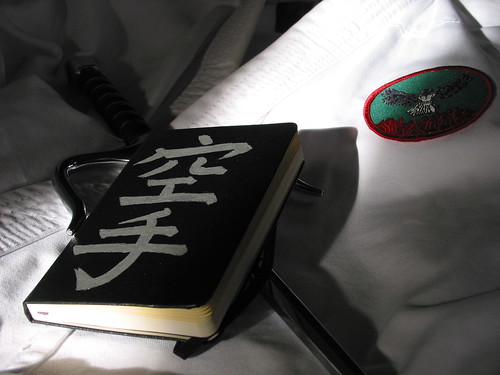Now that we know how to practice and how to get feedback, we circle back to practice, practice, practice.
You’ve all heard it before: use it or lose it. You’ve got to keep at a skill to stay sharp.
Every Spring before I get back on the bike, there’s that brief moment of readjustment before I hit my stride and really take off. I know several motorcyclists who took a decade or two off their bikes, then caught the bug again. They remember how to ride, how to shift, but the little things like looking through the turn (something you don’t have to worry about in a car) take conscious effort to bring back.
I know several people who took martial arts as a kid or a teenager. Ask them to demonstrate a kata ten years later and they have no idea. Some barely remember how to throw a proper punch. It’s no different from people who took Spanish in high school, never had cause to use it, and now don’t remember a word.
It doesn’t take decades to lose it, either. A good friend and fellow karateka missed a lot of class time last year due to injury and a return to college. He remembers the basics, but when he performs one of the more recent kata for his rank, he’ll stop in the middle of it and get that blank “oh shit” stare as he tries to remember the next step.
My instructors use a phrase frequently: “Practice makes permanent.”
On the motorcycle or in karate class, muscle memory will often take over. I don’t think about shifting gears, it just happens. If I consciously think through the steps of a kata, my body will often be three steps ahead already. I’ve learned to relax my mind and let the body take over.
In a sense, this works for writing, too.
Staying in the habit of writing makes it easier to slip into the groove. Your mind knows “this is writing time” and things click into place. Some writers need a trigger, like a walk around the block or a song playlist. Others have a specific time of day to write, such as right before work or after the family goes to bed. Full-time writers may have a set routine; Richard Laymon said he wrote in the morning, had lunch and a nap, wrote in the afternoon, and spent the evening with his family.
Practice brings routine. I ride the bike to and from work. I have class three times a week. I write… well, I’ll admit that routine is often shaken up by my schedule. But now that it’s warmer, if I sit outside with a cigar and the iPad I’ll be able to produce some serious word counts again.
Writing in a write-when-I-can method means taking a few minutes to shake off the rust, even if it’s just been a few days since my last session. I fiddle with iTunes, scroll through email, maybe open up Instapaper and see if there’s a short article or piece of flash fiction I saved. I have to find a trigger. If I sit outside on a warm night, though, all I have to do is light a cigar and connect the keyboard and I’m off to the races.
We learn a skill or take up a craft for a reason. Keep using it, keep learning, keep practicing.
Stay sharp.
About Mike Oliveri
Mike Oliveri is a writer, martial artist, cigar aficionado, motorcyclist, and family man, but not necessarily in that order. He is currently hard at work on the werewolf noir series The Pack for Evileye Books.























